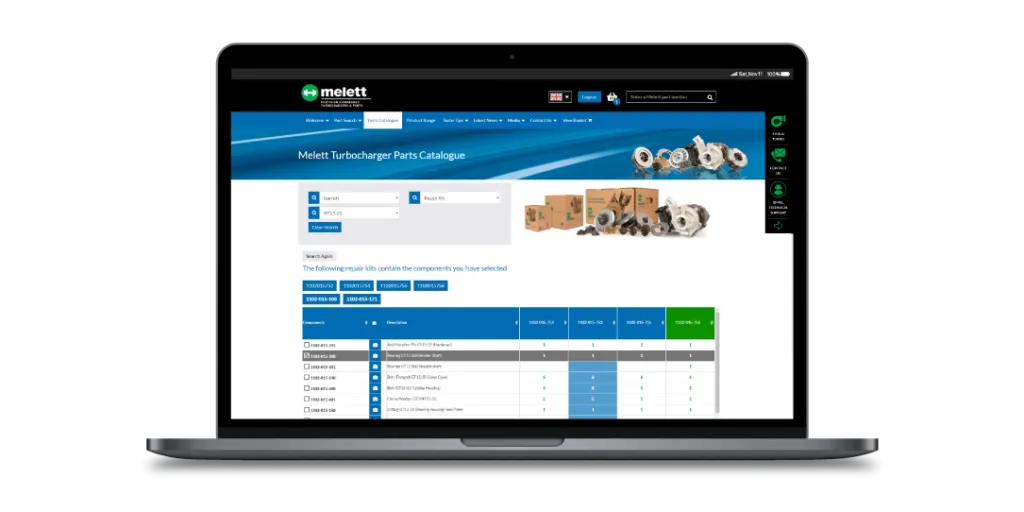Transform the way you work.
Whether your business already uses a CRM, ERP or other core business system, if you rely heavily on spreadsheets and databases, then a bespoke software or custom application could be the key to a more efficient and profitable operation.
Custom applications represent an excellent investment for businesses that might only have one particularly challenging business process for which they wish to create a solution to that removes the inefficiencies in the current workflows – often the result of an over-use of spreadsheets and a lack of automation.
Why use a bespoke software or custom application?
Some of the benefits to adopting a bespoke software or custom application are:
- They are designed around the unique needs of your business, rather than being general purpose
- There is the opportunity to continue to extend and modify the software to address other business processes
- As your business evolves and changes, solutions custom applications can be adapted to continue to meet the needs of the organisation

Here’s what businesses using custom applications find:
Reduction in inefficient tasks
93%
Increased team productivity
91%
Reduced data entry
77%
Frequently Asked Questions:
Custom Application is the term most often used to describe a bespoke software solution designed around the unique needs of the customer, rather than something which is developed and resold many times over.
Custom applications are generally those that are either installed locally on a PC, Mac or mobile device, or which leverage a some form of workplace innovation platform, like Claris FileMaker to make them available across platforms.
A custom application might be a relatively limited in purpose and created to resolve an information or process challenge that affects just one or two people within the business, or a small area of the wider operation.
However, custom applications are also great at leveraging the power of an underlying relational database to manage and serve data to many people across different parts of a business. They can easily extend across process and departmental boundaries, replace the use of many stand-alone spreadsheets or databases.
With a user interface and features designed around the exact needs of the business, its users and their roles, custom applications can remove bottlenecks in efficiency, resolve issues with inconsistent and inaccurate data and improve visibility and business process workflows.
One of the greatest benefits a custom application brings any business, is the ability to enhance and adapt the application to continue to suit the needs of the organisation as it evolves. This ensures the maximum return on investment is maintained in to the future, and that opportunities to further improve efficiencies within the business can be readily capitalised on.
Unlike Custom Applications, typically leveraging a some form of workplace innovation platform, like Claris FileMaker, to make them available across platforms, Web Applications are those that that are developed with the specific intention being accessed through a web browser at all times.
A ‘web application’ is any software that is developed to be operated only in a web browser, therefore potentially on any type of PC or device capable of running a web browser such as Edge, Firefox, Chrome, Safari and so on.
They are developed in a browser-supported programming language and rely on a web browser to enable a user to interact with it. Web application frameworks are available to help ensure some of the labour intensive and specialist knowledge required to develop robust, efficient and secure web-based projects are more readily available, but the process still requires specialist knowledge and the combined use of multiple technologies.
Web applications are increasing in popularity due to the continued evolution and dependency of the Internet and networks, and also the convenience of using a web browser as a client with no requirements to first install the software.
The ability to update and maintain web applications without distributing and installing software on potentially thousands of client computers is a key reason for their popularity, as is the inherent support for cross-platform, cross-device compatibility.
Common web applications you might already use without realising include webmail, such as Outlook.com, productivity suites, such as Office Web Apps or Google Docs, online auctions, such as eBay and increasingly the historic vendors of accounting and CRM type software, such as Sage, are all now focusing on the delivery of their systems over the Internet, or if installed locally on a company’s servers, having users access the program through a web browser, whether they are in the office or working remotely.
Disadvantages of a web application can be that not all web browsers support the same programmed behaviours, a web application has limited access to the underlying hardware (e.g. sensors or cameras in mobile devices) and, of course, whilst not always entirely dependant on a stable and consistent internet or network connection, they are typically best used when used ‘online’.
This is the part that’s difficult to talk about, because each business’s requirement differs so greatly.
For one business a custom application might offer significant benefit for just one or two people in the business, within a single department. Perhaps, for a different business, a custom application might be one which would be used by many people across the business, managing various business processes across departments, whilst using the same key data.
With the two scenarios in mind, it’s easy to realise how very difficult it is to suggest a development cost.
One significant benefit to Contedia’s agile method of custom application development is that we can structure the delivery of systems in a phased approach according to our clients’ demands, bringing core features and functions to life quickly, whilst continued development continues without disruption and updates and upgrades are rolled out seamlessly.
This ensures that stakeholders begin to realise an immediate business benefit and see a return on initial investment, even prior to fully financing the application or reaching the project’s ultimate objectives.